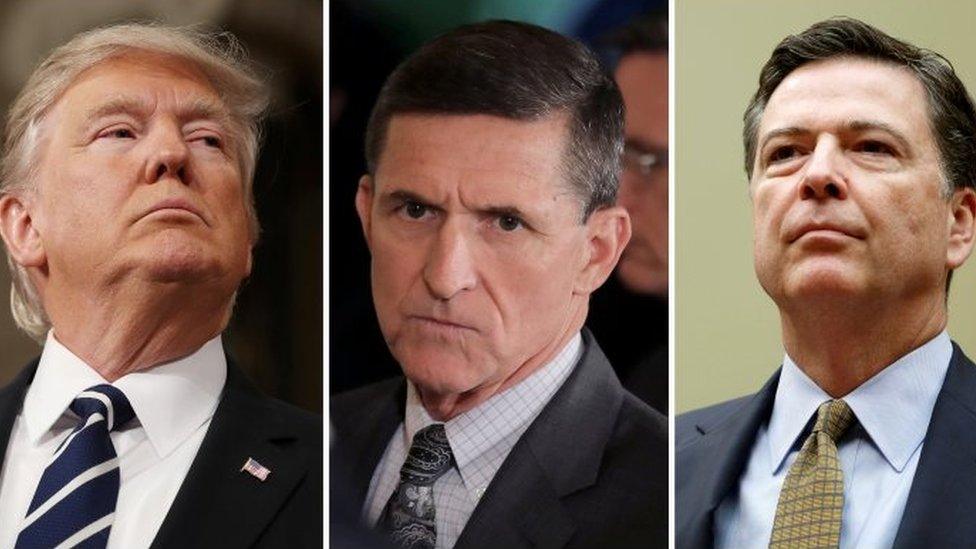Trump goes to war with 'un-American' leakers
- Published
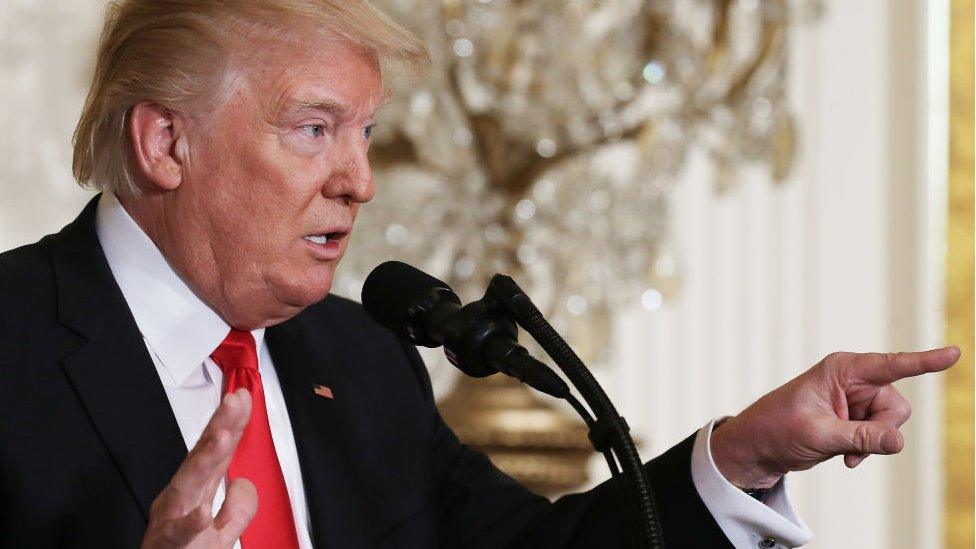
Washington is rife with political warfare, as 2016's presidential electoral combat spills over into Donald Trump's presidency and shows no signs of abating.
It's a battle of leaks and tweets, background innuendo and rhetorical broadsides.
In the middle of the maelstrom are federal law-enforcement and intelligence agencies and operatives that are supposedly above the partisan fray.
It hasn't worked out that way.

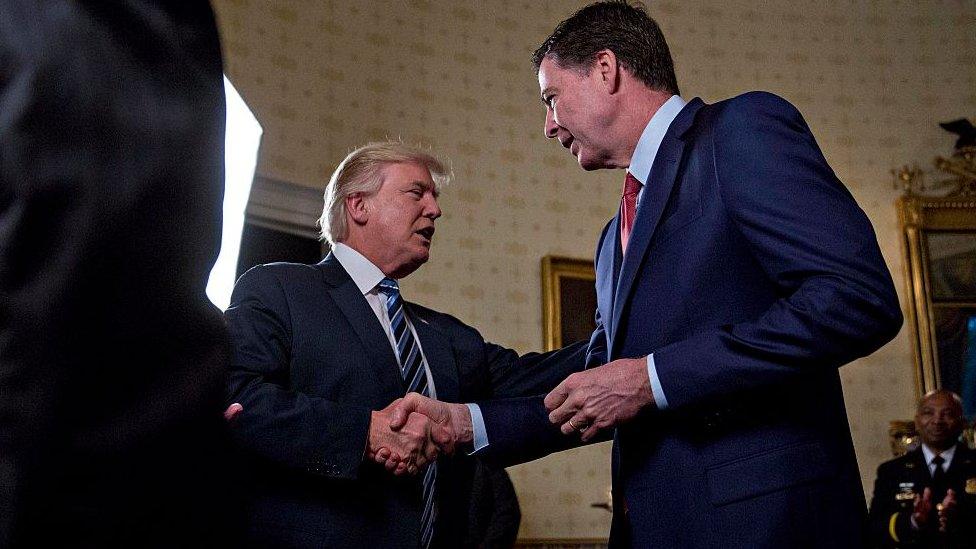
James Comey, director of the FBI, has come under fire from the left and the right
When leaks were welcome
During the campaign, Donald Trump loved to tout the latest news about the FBI investigation into Hillary Clinton's email server - whether through the agency's public pronouncements or background leaks to media outlets.
"The investigation is the biggest political scandal since Watergate," he said at a late October rally in Iowa, "and it's everybody's hope that justice at last can be delivered."
In one early November television advert, an ominous voice warned that the former secretary of state couldn't lead the US while "crippled by a criminal investigation, external".
"She is unfit and unqualified to be president," Mr Trump said at a rally in Michigan, "and her election would mire our government and our country in a constitutional crisis we cannot afford."
Meanwhile, it was Democrats who were crying foul - focusing their scorn on FBI Director James Comey in particular.
"By providing selective information, he's allowed partisans to distort and exaggerate in order to inflict maximum political damage," Clinton campaign chair John Podesta said in October, "and no one can separate what is true from what is not because Comey has not been forthcoming with the facts."
Some in the FBI, on background, said the leaks were a reflection of the anti-Clinton views of many in the bureau.
Mrs Clinton, one unnamed FBI agent told The Guardian, external, "is the antichrist personified to a large swath of FBI personnel".
What a difference an election, an inauguration and four weeks of being president make.

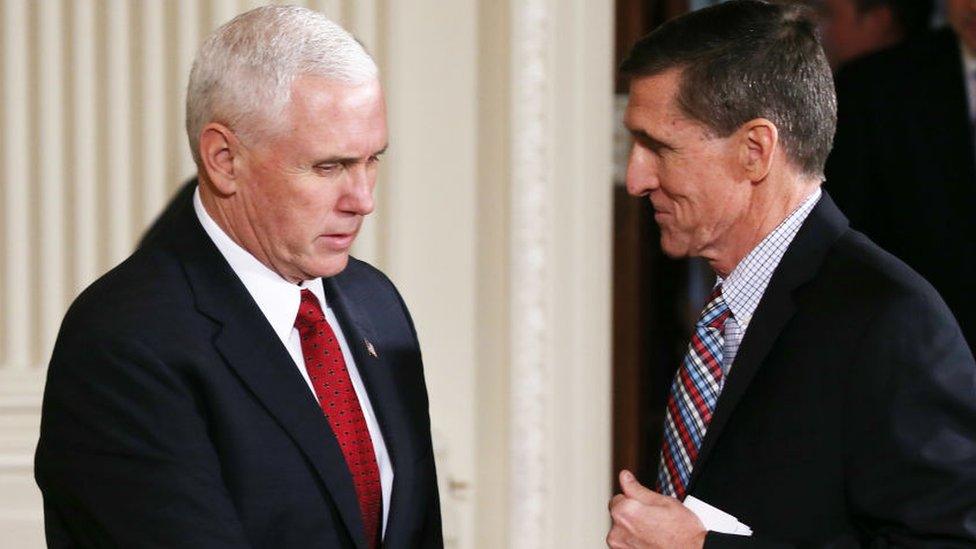
Vice-President Mike Pence (left) had publicly insisted Michael Flynn did not discuss sanctions with the Russians
Trump v leakers
This week, Mr Trump has repeatedly lashed out at the FBI and other intelligence agencies for leaks about investigations into his administration's ties to the Russian government.
"The real scandal here is that classified information is illegally given out by 'intelligence' like candy," he tweeted on Wednesday. "Very un-American, external!"
He mentioned the FBI and the National Security Agency by name, compared them to Russia, external (an interesting choice) and said the New York Times should apologise, external for writing stories based on leaks.
In his press conference on Thursday Mr Trump again pledged to bring to justice those responsible for the leaks, which he said have led to "fake news" stories and could possibly threaten national security.
"Those are criminal leaks," Mr Trump said. "They're put out by people either in agencies - I think you'll see it stopping because now we have our people in."
Mr Trump's comments hint at what others in his White House have called "sleeper cells, external" of career government workers - internal saboteurs - whom they view as hostile to the new president.

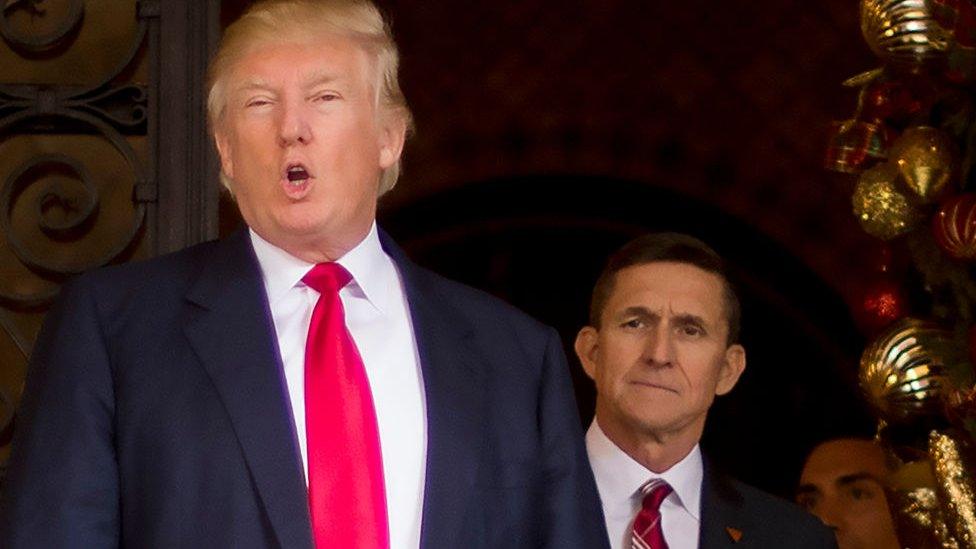
The Flynn controversy may sharpen the focus on Donald Trump's past pro-Russia statements
Police state tactics
There's little doubt that the Trump administration has been rife with leaks. Stories about Justice Department contact with the White House regarding Michael Flynn's conversations with Russian Ambassador Sergey Kislyak - secretly recorded by US intelligence operatives - helped force the embattled national security advisor's resignation.
A New York Times article about ties between members of the Trump team and Russian intelligence agents was based solely on the accounts of anonymous government officials.
According to Eli Lake of Bloomberg View, external, the recent flood of weaponised leaks points to a disturbing trend.
"Selectively disclosing details of private conversations monitored by the FBI or NSA gives the permanent state the power to destroy reputations from the cloak of anonymity," he writes. "This is what police states do."
Lake's column rose to particular prominence when Mr Trump thanked the author in a Thursday morning tweet and said it was a "very serious situation, external".
The leaks are just one piece of what has become an ongoing feud between Mr Trump and the intelligence community over concerns of Russian meddling in the US election.
Mr Trump and his team view attempts to investigate and document Russian efforts as an under-the-table effort to undermine the legitimacy of his electoral win.
In January, before his inauguration, Mr Trump upped the rhetoric by comparing agency leaks to the actions of Nazi Germany, external.
This prompted a stinging rebuke from former CIA head John Brennan., external
"I found that to be very repugnant, and I will forever stand up for the integrity and patriotism of my officers who have done much over the years to sacrifice for their fellow citizens," he told the Wall Street Journal.


Reports say Robert Harward (right) turned down the National Security Advisor job due in part to toxic politics
Toxic politics
In the last days of the presidential campaign, some observers framed the election as a "deep state, external" feud between the CIA, which backed Mrs Clinton, and the Trump-friendly FBI.
Given Mr Trump's recent animosity towards the FBI, and reports of an ongoing investigation by the bureau into possible Trump campaign ties to Russia, that now seems less likely.
The fact that such views could have been widely shared, however, demonstrates just how toxic the partisan views of these government entities have become. If anything, the conflict between the Trump team and the intelligence community seems to have escalated in the days following Mr Flynn's resignation.
A Wall Street Journal report, external indicated that members of the intelligence community were withholding details in the president's national security briefings for fear of compromising their information sources.
Meanwhile, White House sources told the New York Times of a pending review - and perhaps restructuring - of the intelligence community, led by an outsider, financier Stephen Feinberg, external, who is intensely loyal to the president.
In other sections of the executive branch, systemic "housecleaning" is already underway. The State Department, which is also viewed by the White House as stocked with political opponents, just announced widespread layoffs, external.
Intelligence agencies may fear what's coming their way - and further leaking is their best way of pushing back against the White House.

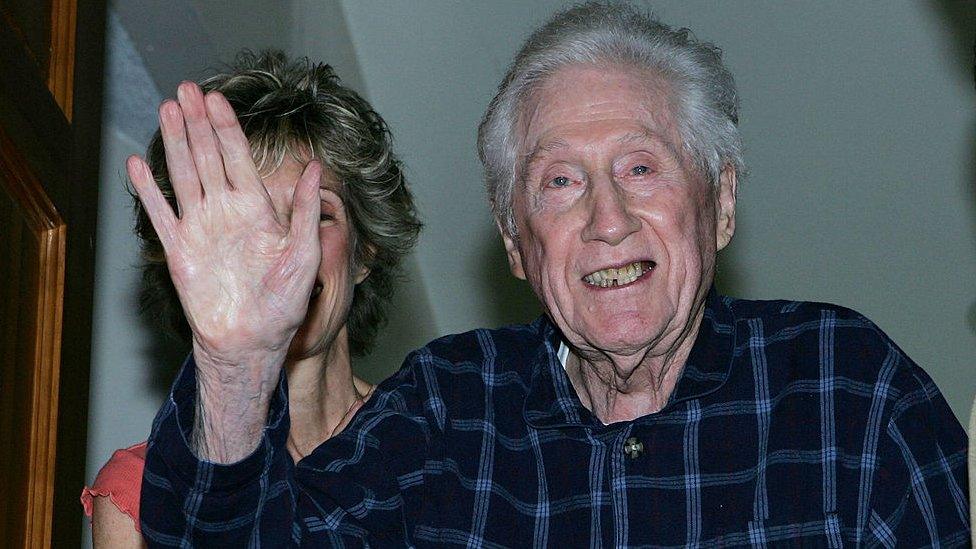
Mark Felt was revealed as Deep Throat in 2005
History repeats
While it is easy for critics to paint the ongoing drama as unprecedented, this is far from the first time members of the intelligence community have become entangled with politics.
In 1993 President Bill Clinton fired FBI Director William Sessions - the first time the nation's top law enforcement official had been sacked mid-term.
Then there's the case of the deputy director of the FBI whose background leaks helped bring down President Richard Nixon during the Watergate scandal.
The man was Mark Felt, but for decades he was known by different name - Deep Throat.
The leaks in Washington right now are many - and some have proven quite damaging.
If history is any guide, however, the real fireworks may still be ahead.
- Published15 February 2017
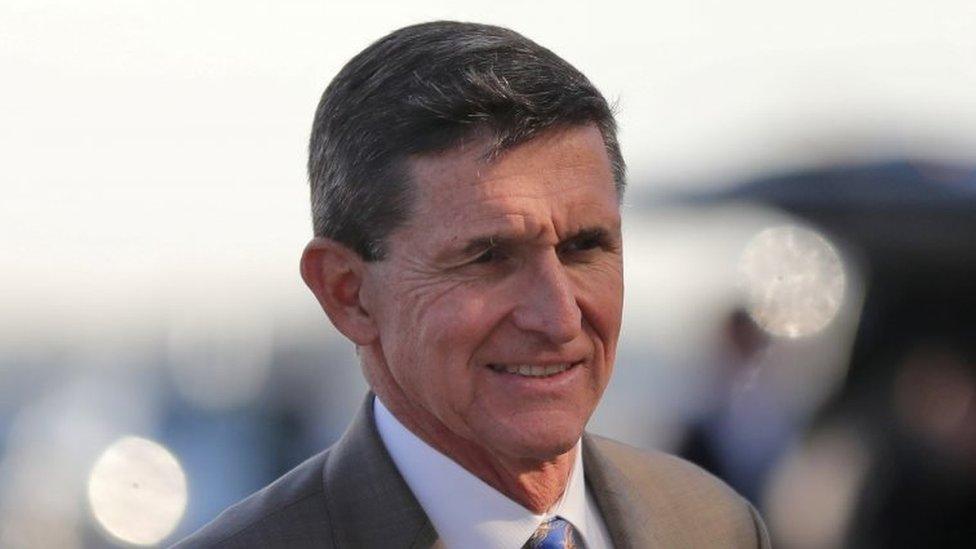
- Published14 September 2018
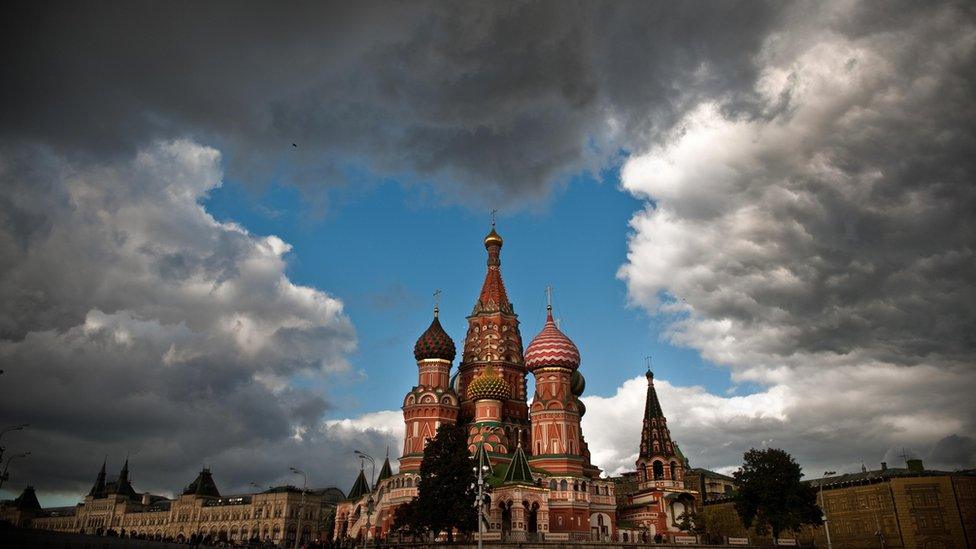
- Published12 July 2017
